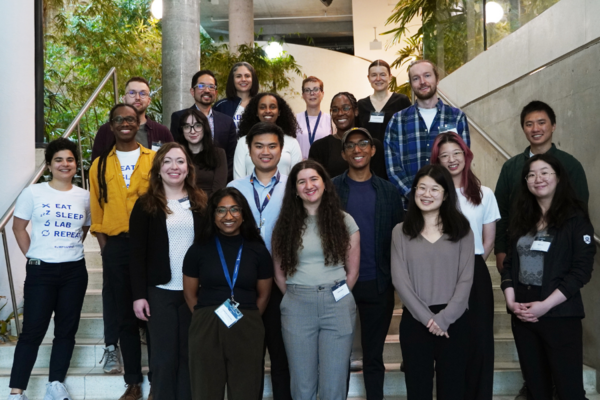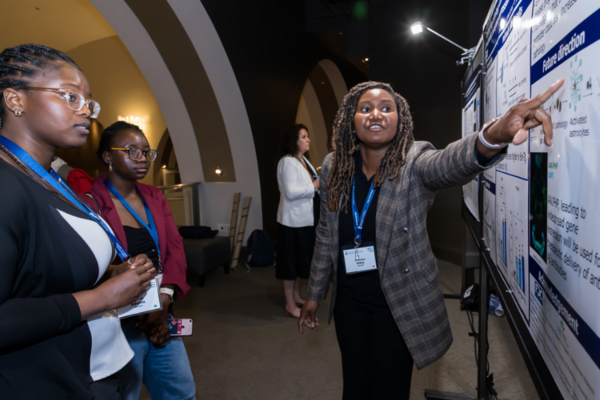Preparing forensic pathologists for the courtroom: a reimagined approach to teaching vital skills
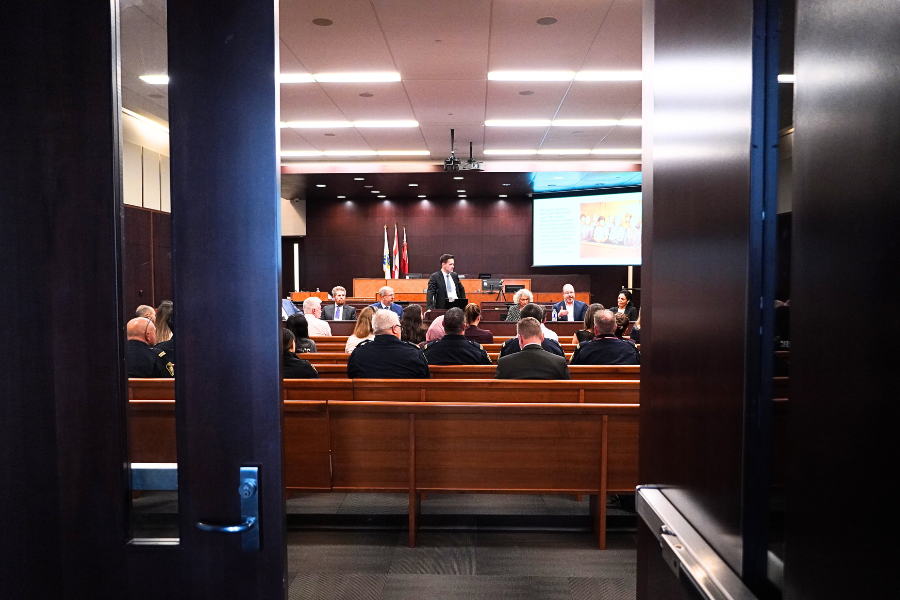
Forensic pathologists have a multi-faceted role. They perform autopsies as part of the death investigation process, are a vital part of public health, teach, conduct research, and, importantly, they are a key part of the criminal justice system. “Forensic Pathologists are there to answer questions that no one else can answer and give fact-based, medically and scientifically-informed opinion evidence in court,” explains Dr. Andrew Williams, Program Director of the Forensic Pathology Training Program in the Department of Laboratory Medicine and Pathobiology at the University of Toronto. Being a good expert witness is a particular and vital skill set and Dr. Williams wanted to develop how this was taught in LMP.
Being the first-ever dedicated program to teach forensic pathologists in Canada, the LMP program in Toronto has provided a wealth of interesting and varied cases and exposure to many experienced pathologists for its trainees. However, courtroom training was principally based on observational opportunities that presented themselves to individual learners throughout the year and were less regimented.
Dr. Williams became Program Director in 2022, and being an alumnus of the program himself, came armed with ideas for new approaches.
Trainees mostly got their courtroom experience by accompanying an experienced pathologist on their cases. “This entirely depended on who they knew in the department, and which of the faculty routinely thought to bring a trainee along with them to court. It would also depend on if the learner’s daily schedule lined up with the proposed court dates. This was unpredictable and was further compounded during COVID when much of our testimony was abruptly transitioned to remote online platforms such as Zoom, so I wanted to make structural changes to the program to improve the consistency in the court-specific curriculum delivery” explains Williams.
To do so, he introduced a longitudinal curriculum scheme in the form of mentorship where trainees are paired with a faculty mentor with objectives related specifically to courtroom testimony. This includes preparing a CV for the court, common questions during the process of being qualified as an expert witness (the ‘voir dire’), and questions typical of direct examination and cross-examination. The mentor is also expected to take the trainee to court with them whenever possible.
Trainees are evaluated on court room testimony by being examined on the stand. Williams wanted to expand this experience so took this evaluation and made it part of a new full-day multi-disciplinary training event: Court Testimony Training Day, which took place for the first time in May this year.
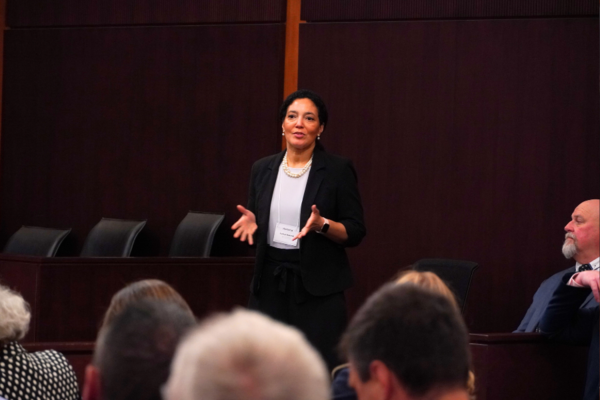
“One thing I hope I bring to the job is some humility. Although we're very good at understanding how we integrate into the law most of the time, who else is better qualified to teach us more than legal experts in the system? We can teach our perspective of courtroom testimony, but it is just as, if not more, valuable for our trainees to hear from the judiciary who decide whether or not evidence is acceptable and what boundaries we must stay within, as well as the lawyers themselves - the people who will be doing the questioning,” he explains.
After being invited to take part as an expert witness in a multi-day training event held by the Ontario Crown Attorney Association, Williams was inspired by the interactive and multi-disciplinary approach they used and so tried to emulate that approach in the Court Testimony Training Day. At the Crown’s event, he was introduced to Madam Justice Rita Maxwell who was appointed to the Ontario Court of Justice in 2017 and the Superior Court of Justice in 2021. Williams then invited her to be involved in the training day hosted in Toronto.
On the day, Justice Maxwell delivered a keynote session on the judicial perspective of expert testimony in the morning and presided over a mock court in the afternoon. While the majority of learners experienced the mock court session with seasoned experts facing questioning over a murder case, the forensic pathology trainees underwent their own individual mock testimony experiences with practicing Crown attorneys acting as Crown and Defense counsel. “The experience, evaluation, and feedback for our trainees on the stand were fantastic, we had Crown attorneys questioning them just as they would in court in the real courtroom setting of our Coroner’s Courts at the Forensic complex. You cannot get closer to the real thing than that so I feel the trainees will be well prepared for being on the stand,” said Williams.
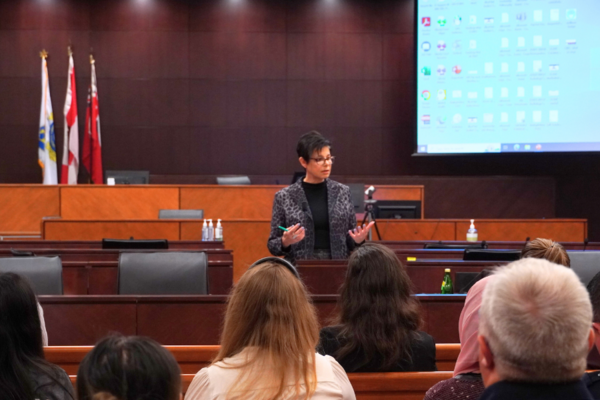
Although forensic pathologists will often meet with the Crown Attorneys (prosecutors) before court, they are rarely exposed to the defense attorneys, except when on the stand. Receiving a keynote address from Ms. Marie Henein, Partner at Henein Hutchison Robitaille LLP, on the critical role of expert witnesses, gave them many insights. As one of the most prominent litigators in Canada, with extensive experience as lead counsel on high-profile criminal, civil, and regulatory cases, Ms Henein’s courtroom experience was invaluable for the trainees.
“I wanted experts like Justice Maxwell and Ms Heinen to show our trainees their world. We only see a tiny sliver of the justice system, we know our part well, but understanding it holistically can only make us better at our jobs,” explained Williams.
Justice Maxwell also took part in a lively and interactive panel session alongside experts in suspected child abuse and neglect (SCAN), toxicology, fire investigations, Crown attorneys, and an ex-Deputy Chief Forensic Pathologist, Dr. Toby Rose. Williams wanted to involve many of the agencies that forensic pathologists interact with so invited the Office of the Fire Marshal and the Center for Forensic Sciences, not only to participate in the panel, but to have a multi-agency education session, taking advantage of all the talent that was there for the day.
“The mock expert witness sessions running concurrently in the afternoon were as realistic as they could be. The experts on the stand had no idea what they were going to be asked. It was a great experience for early career individuals who had never been in court before. We also had some medical residents attend who were interested in forensic pathology, so it gave them some insights into this aspect of our profession.”
Such a large event won’t be possible to hold every year, but Williams hopes to replicate it every two to three years, continuing with a more forensic pathology focused version in between to ensure his trainees get the same mock court experiences in every cohort. “For me there was enormous satisfaction in seeing the degree of engagement of the audience and of the expert panel. Everybody seemed to be really enjoying and consuming the content so I'm excited to have been able to deliver on the educational objectives that we sought out to do in a format that was meaningful to all the different stakeholders in the room”.
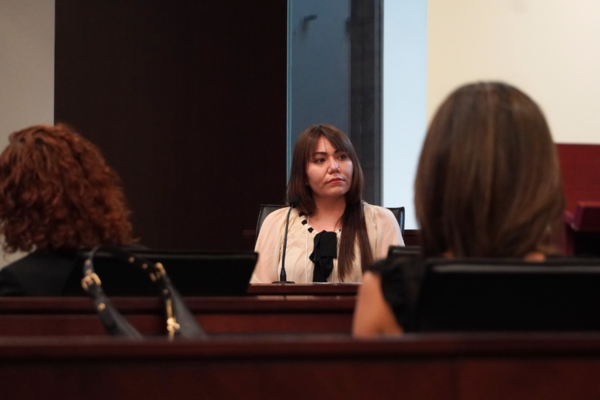
Dr. Karissa French, one of the LMP trainees who took part in the day commented, “The day provided invaluable experience unlike anything else my medical education has offered. As a physician you are taught to be able to explain things to patients, this doesn’t really apply to pathology where our main point of contact is other physicians. Speaking in court brings it right back to core lessons from medical school. The simulated court appearance provided an opportunity to practice these skills while simulating the kind of pressure that will exist within the real court room. Additionally, I found the speeches from the judge and defense lawyer quite useful as these are the kinds of perspectives that will impact my work in the future. These both brought new perspectives on concepts I knew, ones I didn’t, and provided me with information that will be helpful in being effective in my soon-to-be future role as a forensic pathologist.”
Read more about Dr. French in Karissa French: Forensic Pathology and the Raymond Chang Fellowship
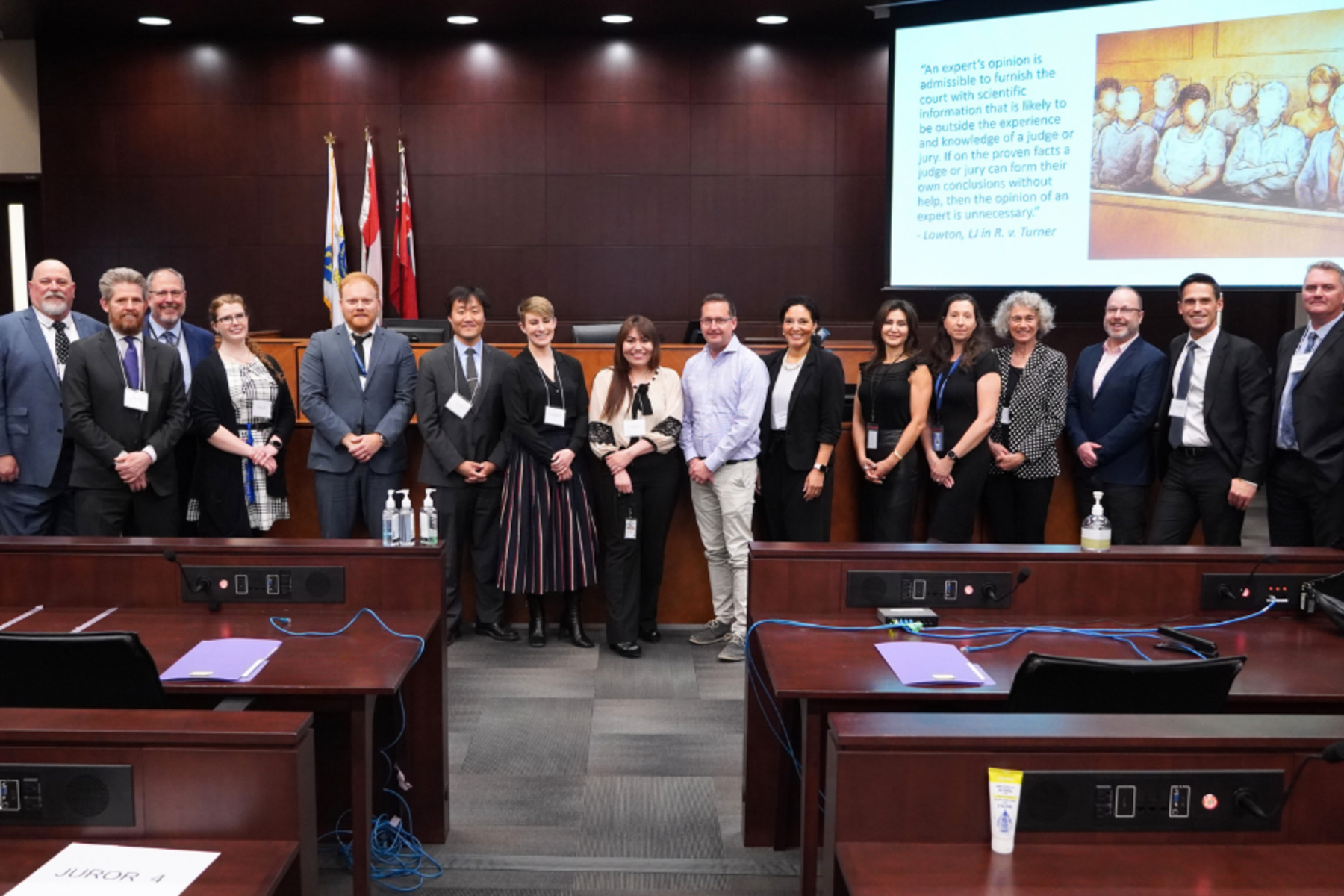
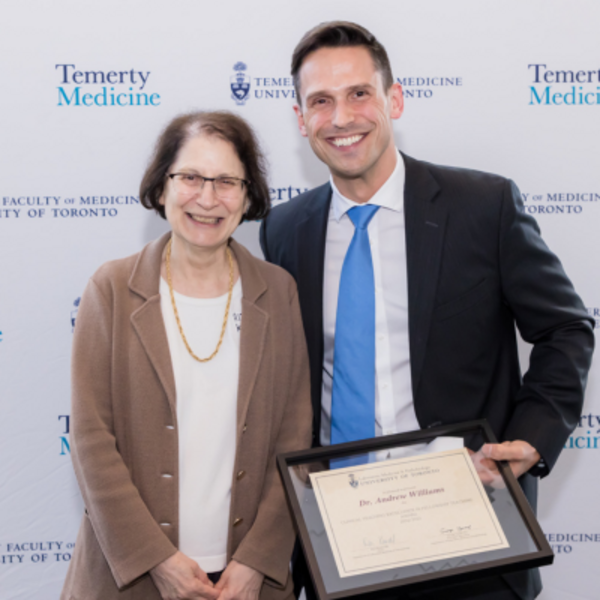
Dr. Andrew Williams was awarded the LMP Teaching Excellence Award in Fellowship Education this month at the LMP Annual Celebration of Excellence.
This initiative showcases the following pillars of the LMP strategic plan: Inclusive Community (pillar 1), Dynamic Collaboration (pillar 2), Disruptive Innovation (pillar 4) and Agile Education (Pillar 5).


